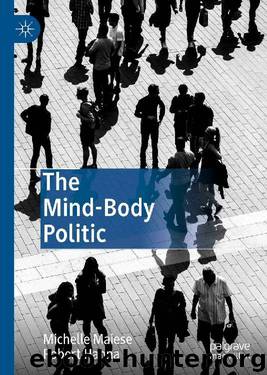The Mind-Body Politic by Michelle Maiese & Robert Hanna

Author:Michelle Maiese & Robert Hanna [Maiese, Michelle]
Language: eng
Format: epub
ISBN: 9783030195465
Publisher: Springer International Publishing
Published: 2019-06-28T07:00:00+00:00
4.3 Shared Expectations in Online Education
So far, we have been talking about the social institution of higher education, broadly speaking. In this section, we focus more specifically on online learning as an educational institution that has emerged relatively recently and whose development has been heavily influenced by neoliberal ideology. The online learning environment centers around web-based technology, course management software, online communication, and distance learning. Like other “mental institutions,” it involves a particular set of “rules, procedures, practices and participants” (Slaby and Gallagher 2014, p. 15) that offer specific interactive possibilities and afford particular kinds of communication, thinking, and engagement.
For example, many course management systems involve “course modules” that allow students to move progressively through a course, day-by-day and week-by-week. While some communication takes place in real-time, via chat rooms, the most prevalent use of educational technology in higher education involves asynchronous online courses; such classes are not automated, but they lack a face-to-face dimension, and all interactions are mediated, largely via text-based discussions (Rose 2017, p. 375). In fact, the opportunity for asynchronous learning may be viewed as a key advantage of such learning environments: students can engage with the course materials whenever it works best for them. This offers flexibility to students with work and family obligations. Such technology and web-based media offer various possibilities (affordances), which at the same time carry our cognitive and affective processes in particular directions. That is, these environments solicit certain kinds of communication, problem-solving, and thinking, and can have profound effects on the cognitive-affective processes associated with learning.
There are significant reasons to think that online learning both reflects and perpetuates neoliberal aims and values, and that this impacts not only how and what students learn, but also how they (as well as their professors and those in broader society) understand the value and aims of education. We worry that online learning distorts people’s understanding, impedes their communicative practices, and narrows their possibilities for action in important ways. And this is because the institution of online education is “pervaded by broader cultural practices and tendencies” (Slaby and Gallagher 2014, pp. 5–6), namely those associated with the contemporary big-capitalist economy.
It seems clear that the push toward increased online course offerings has been motivated largely by people’s busy work schedules and a desire to expand the education “market.” Increased online offerings are a means of “increasing enrollments,” by putting bums on (virtual) seats (Washburn 2006, p. 227), and allowing people to pursue higher education while still working full-time. Under neoliberalism, values such as “efficiency” and “sustainability” come to govern academic program development and course scheduling, and also have helped to motivate an increased reliance on online offerings. Since students “vote with their feet,” and face-to-face courses may be under-enrolled while online courses are always full, there is increased pressure to cater to “what the customer wants,” regardless of whether “best practices” are employed or online courses bring about significant learning. In the realm of online learning, there is a danger that the educator will become
Download
This site does not store any files on its server. We only index and link to content provided by other sites. Please contact the content providers to delete copyright contents if any and email us, we'll remove relevant links or contents immediately.
| Anthropology | Archaeology |
| Philosophy | Politics & Government |
| Social Sciences | Sociology |
| Women's Studies |
Inward by Yung Pueblo(950)
The Good Book by A. C. Grayling(920)
A Meaning to Life by Michael Ruse(650)
Rings of Saturn by W. G. Sebald(641)
Letting Go: The Pathway of Surrender by David R. Hawkins(600)
Corporate Psychopathy by Katarina Fritzon & Nathan Brooks & Simon Croom(565)
The Most Human Human: What Talking With Computers Teaches Us About What It Means to Be Alive by Brian Christian(555)
The Jesus Delusion by Heinz-Werner Kubitza(550)
The Astrology of Love & Sex by Annabel Gat(539)
A Wonderful Life by Frank Martela PhD(525)
The Feeling of Life Itself by Christof Koch;(489)
The Most Human Human: What Talking with Computers Teaches Us About What It Means to Be Alive by Christian Brian(453)
Choiceless Awareness by J. Krishnamurti(416)
Love Unveiled by A. H. Almaas(409)
An End to Upside Down Living by Gober Mark(404)
A Burst of Conscious Light by Andrew Silverman(387)
Lin Yutang - the Importance of Living by Lin Yutang(382)
Design, Mediation, and the Posthuman by Dennis M. Weiss(375)
The Ecological Thought by Timothy Morton(374)
